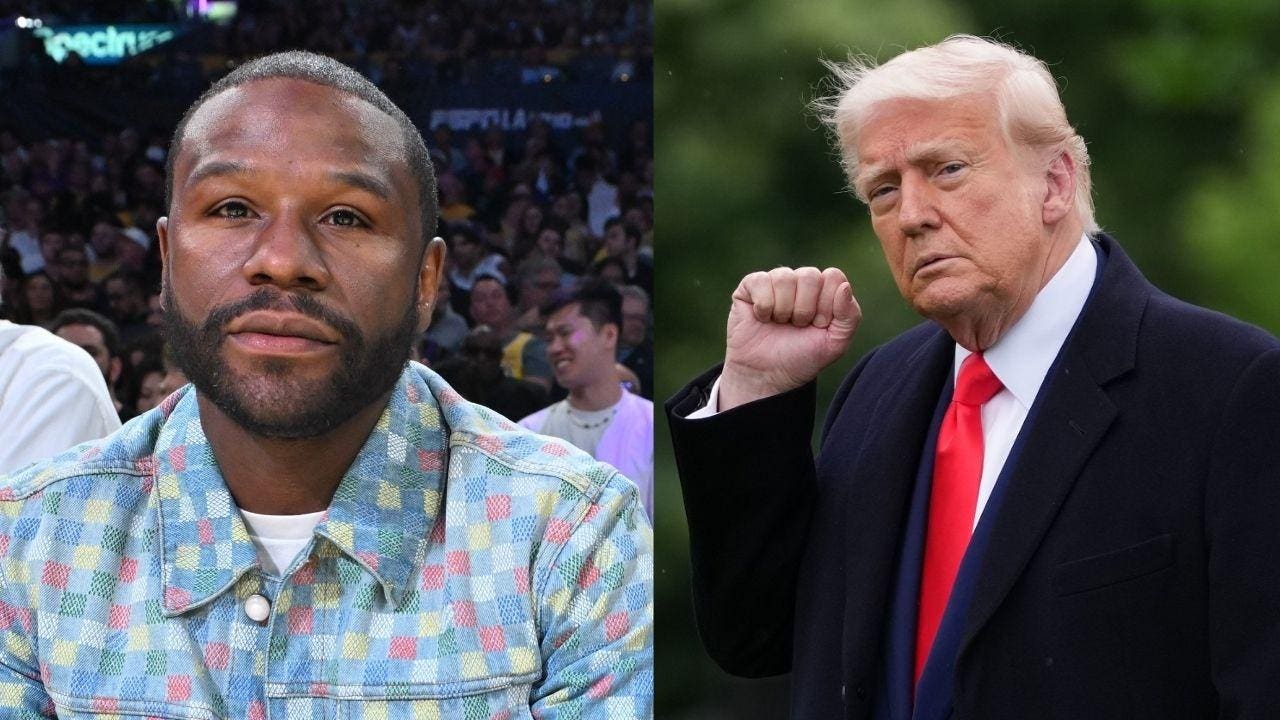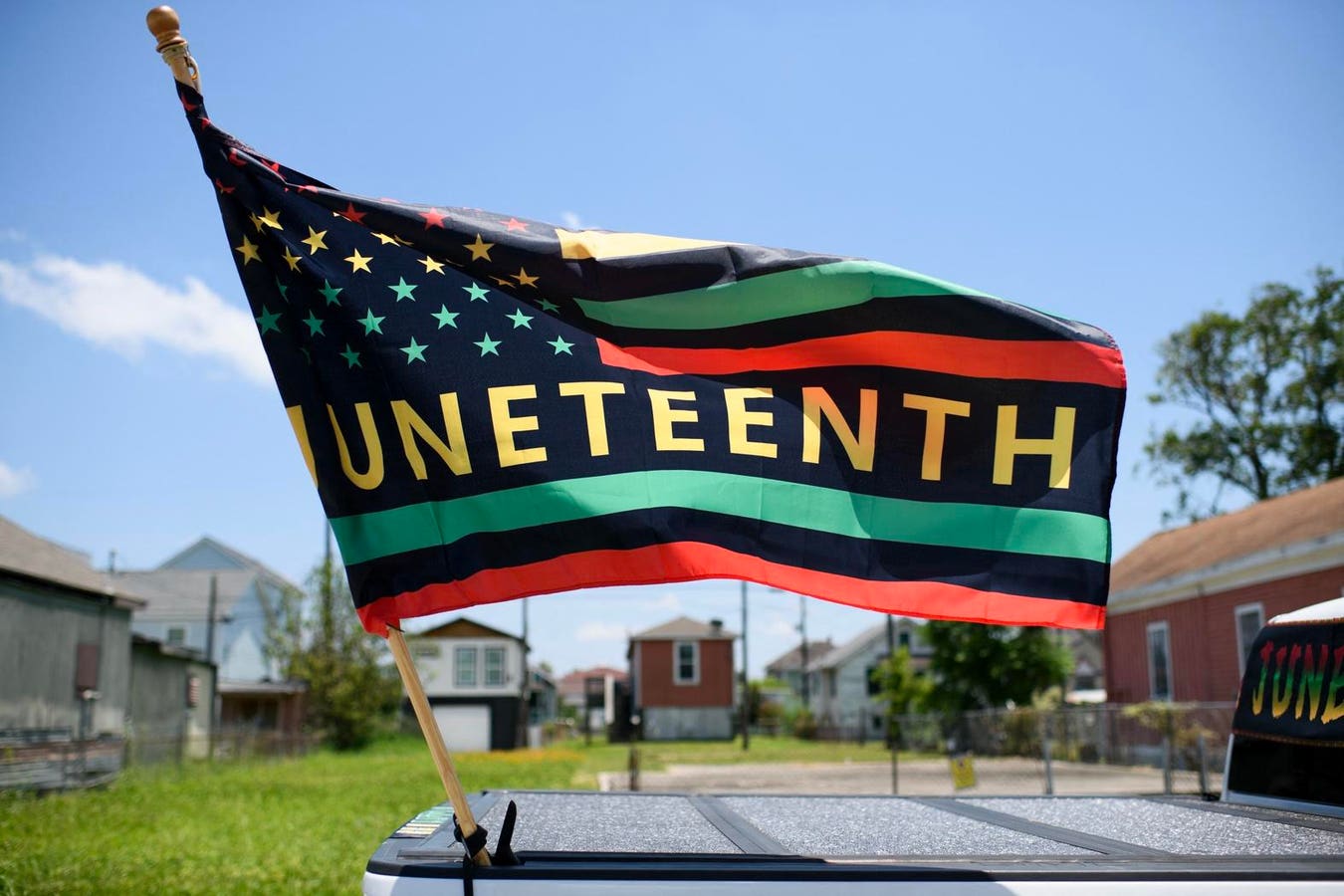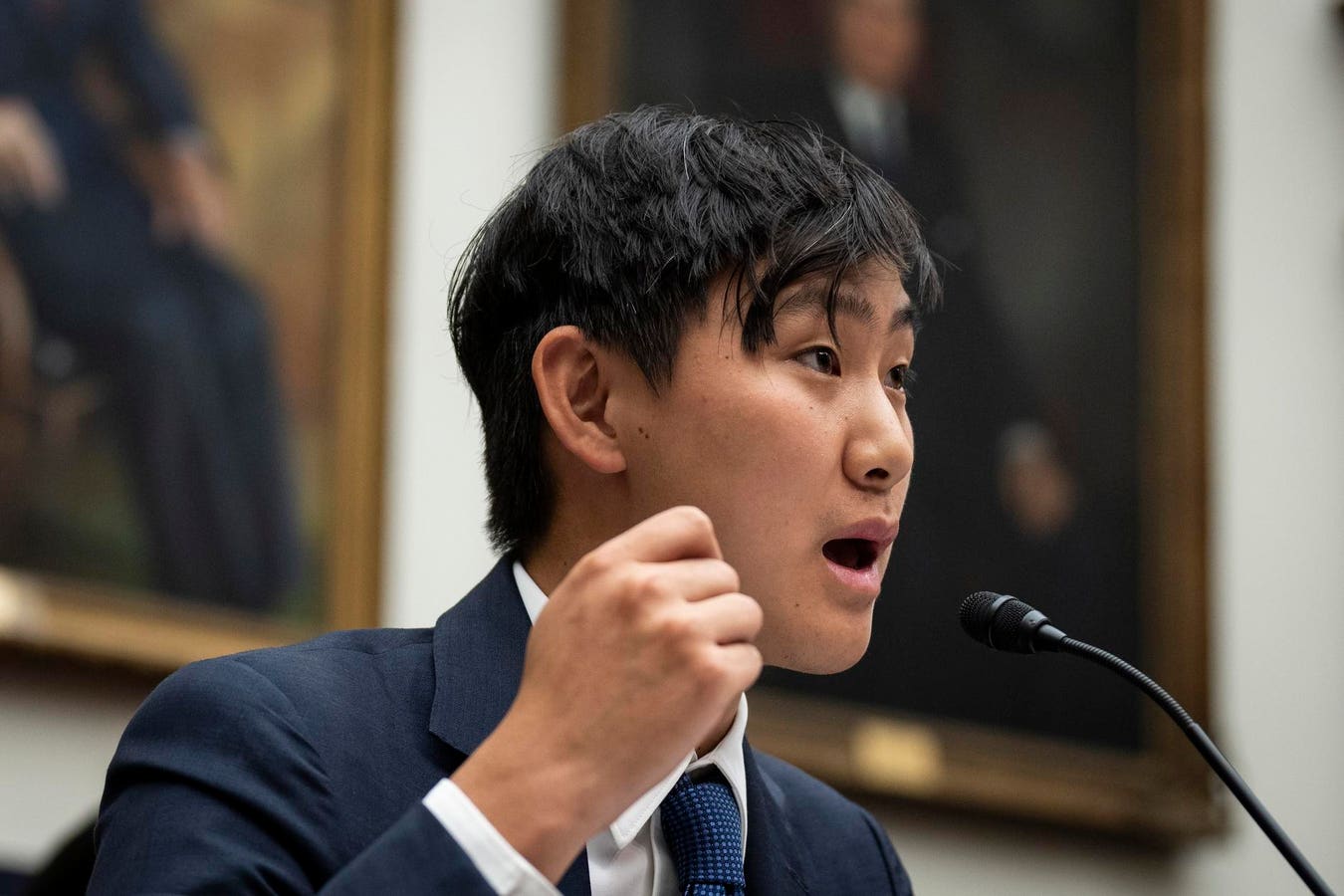Floyd Mayweather and Donald Trump, HBO Boxing Icon says, “No Mayweather, No Trump”
“No Mayweather, no Trump.”
That’s the heavy-duty take HBO Boxing icon Jim Lampley dropped on me during our conversation on Friday afternoon. It’s one of the most polarizing, but plausible things anyone has said to me in a while.
In case you’re a relatively young sports fan or someone who didn’t pay much attention to HBO Boxing during the 1990s and early 2000s, you may not know Lampley.
Without listing every accolade and distinction, I’ll say this: there are people in every industry who have a combination of experience and wherewithal that enables them to captivate a room with the stories and takes they’ve accumulated during their journey through levels of their craft and the years of their life.
Lampley is one of those people.
CANASTOTA, NY – JUNE 14: Boxing commentator Jim Lampley poses with his new ring and photo on the … More
During our interview, we discussed his book, It Happened, his autobiography that tells the story of his 50-year career in sports broadcasting and tons of boxing stories and concepts.
I asked him about the infamous post-fight moment with his longtime broadcast partner Larry Merchant—you know the one, where Mayweather snapped, “you don’t know s### about boxing,” and Merchant fired back, “if I was 50 years younger, I’d kick your a##.”
It’s classic.
I wanted to know from Lampley, who was there, what the deal was with Mayweather and Merchant, but I got so much more.
Lampley explained, “Well, obviously it was something that built up over a long period of time. I think that Larry gave him proper credit for being a great fighter. In particular, he didn’t like that Larry would sometimes say something to the effect of, well, he’s great and you can’t beat him, but he isn’t gonna sell a single ticket with this style, that kind of thing.”
Clearly, Merchant was wrong about Mayweather’s ability to sell tickets. No fighter has made more in pay-per-view revenue, and Mayweather can still command a crowd and a payday by participating in boxing exhibitions.
Also, if you watch the history of post-fight interviews between Mayweather and Merchant, the latter is particularly abrupt and a little antagonistic toward the fighter.
Even during the aforementioned interview, the conversation starts off with Mayweather having his arm around Merchant. However, Merchant’s tone and verbiage was off-putting to Mayweather as it came just moments after the controversial ending to his fight with Victor Ortiz, but I digress.
That aspect of Lampley’s answer was mostly what I expected to hear. The broadcast journalism legend delivered a punchier concept as he delved deeper into Mayweather’s dynamic and his overall influence on American culture.
NEW YORK, NEW YORK – FEBRUARY 26: Floyd Mayweather Jr. visits “Making Money With Charles Payne” at … More
“One of the things I say, have said over and over and will continue to say until proven otherwise, no Mayweather, no Trump,” Lampley said. Trump is a boxing fan, Trump watched what Floyd did. Trump realized from what Floyd did that you could build and develop a social media audience and you could do it with negativity. You didn’t have to be happy talk. You didn’t have to be a great guy. There were some people who would rather that someone was channeling their angst and their frustration and venting it on the web. And I believe to this day, no Mayweather, no Trump.”
The concept is wild, but not completely unfathomable.
I used to say this about Mayweather, ‘it takes a special kind of person to be at peace with being the most hated person in a room.’ In that sense, it’s easy to see tons of people in every industry who have adopted that approach–whether they got it from Mayweather or someone else.
DETROIT, MICHIGAN – OCTOBER 18: Republican presidential nominee, former U.S. President Donald Trump, … More
Donald Trump’s involvement with boxing dates back to the late 1980s and early 1990s, when Trump Plaza in Atlantic City became a key venue for major fights. At its peak, the hotel and casino played host to several heavyweight title bouts, including, Mike Tyson vs. Michael Spinks in 1988 and Evander Holyfield vs. George Foreman in 1991.
Trump didn’t just rent out space for the fights—he appeared to actively positioned himself as a central figure in these events, often appearing ringside, hosting press conferences, and getting photographed with the fighters.
ATLANTIC CITY, NJ – JANUARY 22: Businessman Donald Trump in ring with boxer Mike Tyson after … More
Some may argue Trump used these moments to build prestige, associate himself with dominance and success, and to thrust himself into the spotlight.
Needless to say, it seems to have worked.
ATLANTIC CITY, NJ – JANUARY 22: Businessman Donald Trump and Champion Boxer Evander Holyfield at … More
Putting a bow on the Mayweather-Merchant beef:
“So Floyd was the original social media genius and the essence of the genius was to prove that you could be negative rather than positive and you would build an audience that way,” Lampley continued. “And so Floyd didn’t like the honest straightforward evaluations that Larry offered on the air and most particularly about his style of fighting that he was a hide-and-seek fighter, that he was not trying to do damage in there, et cetera, et cetera. And I thought that was palpably visible. Floyd just didn’t want anybody to say it. So they didn’t like each other and it was really more Floyd disliking Larry than vice versa.”
Mayweather’s rise to global prominence began in the mid-2000s. Specifically, his bet-on-myself fight against Oscar De La Hoya in 2007. The fight marked Mayweather’s triumphant separation from Top Rank Boxing and it also was the cornerstone moment of his shift from “Pretty Boy” to “Money.”
Mayweather and Trump’s paths would more publicly cross years later.
In 2017, Trump publicly praised Mayweather after his win over Conor McGregor, calling him a “great guy” and “an unbelievable fighter.” Mayweather also endorsed Trump for President earlier.
Mayweather may have used social media to push negative concepts in the past. However, to his credit, I interviewed him earlier this year, and he formally apologized for every time he used social media to be toxic. That admission actually adds some credence to Lampley’s concept.
I’ve never had an opportunity to speak to President Trump, but I can promise you, if I do, I will ask him if he learned anything from his encounters with Mayweather.
Whether Trump truly studied Mayweather’s moves or simply mirrored them instinctively, the similarities are clear—and Lampley might be one of the only people to call it out this directly.








